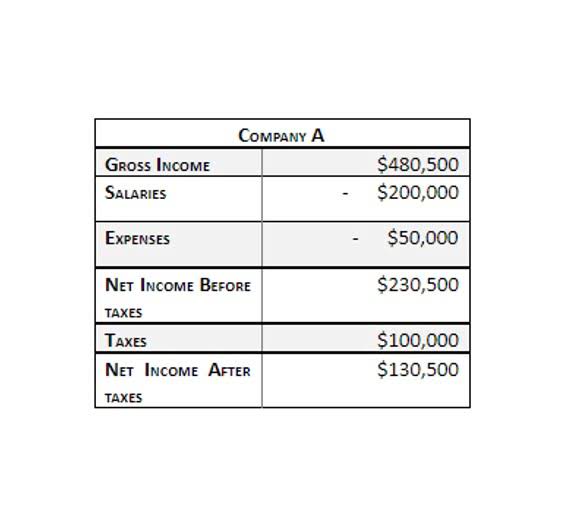
It handles all trust-related transactions in compliance with IOLTA rules and uses the payment industry’s most advanced security measures. Therefore, you must law firm accounts receivable management ensure your clients receive these invoices as quickly and easily as possible to increase the likelihood of them paying promptly. Traditional methods—such as sending paper bills through the mail—are unreliable in today’s hyper-connected, digital world. Paper bills can get lost in the mail, and receiving an invoice months after the work has been completed is frustrating for clients. Generally speaking, once firms send out an invoice, they’ll usually wait until their payment due date expires before contacting a client. Payment due dates vary from firm to firm—while some have 30-day payment due dates, others might be more lenient and extend this to 60 days.

Are Your Law Firm’s Accounts Receivable Processes Up to Date?
Accounts receivable (AR) directly impacts working capital efficiency and shapes business relationships. These funds, owed by customers for goods and services already provided, represent payroll a critical cash flow component. Strategic AR management drives liquidity, operational effectiveness and customer satisfaction. As a critical component of cash flow, AR represents the funds your business expects to receive from customers for goods or services provided on credit. Understanding and managing accounts receivable is essential for maintaining liquidity, as well as for ensuring operational efficiency and fostering strong customer relationships. Through careful attention to these elements, law firms can develop robust financial management systems that support both operational efficiency and client satisfaction.

Key Accounts Receivable Formulas to Measure AR Billing Health

Even before a client signs a retainer, make it a point to explain your payment terms, timelines, and billing processes to set clear expectations and effectively collect accounts receivable in the future. By openly discussing these in initial consultations, you can immediately start your relationship with a potential client on a transparent note. For that, we recommend our Accounts Receivable Automation software, which delivers centralized invoice workflows that keep your payment requests moving with little human intervention. It bears repeating that automating your A/R is one of the most straightforward, cost-effective strategies that you can employ to improve your invoice-to-cash (I2C) cycle.

Inefficient Collections Processes
Small law firms should establish efficient AR management practices, use retainers, automate reminders, and offer flexible payment options to reduce overdue balances. Implementing a comprehensive legal practice management solution can significantly enhance the efficiency of your law firm’s accounts receivable management. Such software can automate various aspects of billing and collections, freeing up valuable time for your team. You might be familiar with the term ‘accounts receivable,’ which simply refers to the money customers owe a business for the goods or services it provides.
- Discover common trust accounting mistakes and essential best practices in the trust accounting guide from TimeSolv.
- Features like Rocket Matter Pay allow clients to make secure online payments with ease, ensuring quicker transactions and reducing the time spent on collections.
- Accounts receivable fits into the broader accounting cycle as an asset account.
- Use automation to make sending bill reminders an effective, efficient process rather than a never-ending distraction.
Inconsistent billing procedures can result in confusion for your customers, leading to payment delays. For instance, if you’re not consistent with your invoice due dates or if the invoice doesn’t reach your customers at the same time each billing period, they might miss or delay their payments. Sometimes, invoices get buried under the pile of other tasks that a client needs to handle.
- This reduces the likelihood of customers defaulting on payments and protects businesses from financial losses.
- Efficiently managing accounts receivable is a cornerstone of financial stability for any business.
- A higher ratio means your collection process is working well, while a lower ratio may point to delays in getting payments.
- Work with our cash management consultants to optimize your entire AR process—from invoicing through reconciliation.
- Payment processing platforms facilitate the collection and processing of customer payments.
- Credit risk management is one of the best practices for the accounts receivable collections procedures.
- As a law firm, having effective accounts receivable management processes in place is crucial for maintaining healthy cash flow.
Your attorneys will waste significantly less time calculating and sending invoices, following up with clients, and chasing payments. Efficient collections and payment processing require clear communication, persistence, and a customer-centric approach. Implementing automated collections processes and Accounting for Technology Companies utilizing technology can streamline collections efforts and improve overall efficiency.

It simplifies accounts receivable management with efficient tools for invoice creation, payment tracking, and financial reporting, making it an ideal choice for businesses focused on financial clarity. Automating your law firm accounts receivables process will save you time and the effort needed to repeatedly follow up with multiple clients over an entire year. Writing off uncollectable accounts receivable can be an effective strategy for law firms to clean up their books while preserving client relationships. Here are some best practices around determining when and how to write off invoices that are very unlikely to get paid. Accounts receivable refers to the outstanding payments that a business is owed by its customers for goods or services provided on credit.
Accounts Receivable Management
Using our proprietary software to assess your current billing processes and analyze opportunities to create efficiencies. We work directly with your attorneys and staff as an extension to your department. Whether that means outsourcing departments entirely or partnering together, we will create a cohesive team that drives measurable improvement for your firm on every front.


